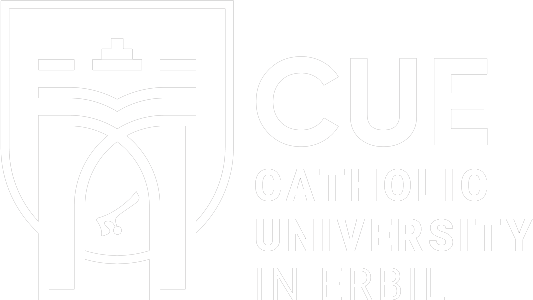Department of Information Technology
Head of Department: Dr. Firas and Almukhtar
The B.Sc Information Technology program provides undergraduates with the broad technical education necessary for careers in the public and private sectors.
Vision
The vision of the department is to be the leading academic department in the region, involved in the latest scientific innovations and providing the industry with highly qualified graduates. Moreover, to provide the Kurdistan Region with research and expertise to address its future development. service.
Mission
The mission of the Information Technology Department is to offer student-centric degree programs that prepare students for highly rewarding careers in the technology sector and empower their contribution to Kurdistan and regional growth through excellence in teaching and meet the development needs of the country and the region through faculty scholarship and community service.
Objective
The B.Sc Information Technology program provides undergraduates with the Broad technical education necessary for productive employment in the public or private sector, and it will develop them to understand the fundamentals and current issues important for future learning. The Information Technology program is specially designed to provide the Information Technology graduates with the knowledge and skills needed to succeed in the workplace in advanced studies. The following program outcomes describe competencies and skills that B.Sc. Information Technology students will acquire by the time of graduation.
B.Sc. IT graduates are expected to be able to:
- Demonstrate their success as Information Technology professionals with a good set of technical, problem solving, and leadership accomplishments.
- Participate in life-long learning activities such as training, continuing education, or graduate studies.
- Contribute to the development and the growth of local and global communities and uphold their ethical, social, and professional responsibilities.
- Apply knowledge of computing and mathematics appropriate to the discipline.
- Analyze a problem, and identify and define the computing requirements appropriate to its solution.
- Design, implement, and evaluate a computer-based system, process, component, or program to meet desired needs.
- Function effectively on teams to accomplish a common goal.
- Demonstrate an understanding of professional, ethical, legal, security, and social issues and responsibilities.
- Communicate effectively with a range of audiences.
- Analyze the local and global impact of computing on individuals, organizations, and society.
- Recognize the need for and an ability to engage in continuing professional development
- Use current techniques, skills, and tools necessary for Computing practice.
- Use and apply current technical concepts and practice in the core information technologies (of human computer interaction, information management, programming, networking, and web systems and technologies).
- Identify and analyze user needs and consider them in the selection, creation, evaluation, and administration of computer-based systems.
- Effectively integrate Information Technology-based solutions into the user environment.
- Demonstrate an understanding of best practices and standards and their application.
- Assist in the creation of an effective project plan.
Job Prospects
- Systems analysts and system support/configuration staff in high-tech telecommunication companies.
- Software/hardware developers/designers in multinational mobile communication companies such as Nokia and Sony Ericsson.
- E-business solution developers/designers at Internet companies.
- Software/hardware designers for financial institutions.
Curriculum
| Level | Semester | No. | M Code | Module Title | ECTS | |
| UGI | One | 1 | IT1101 | Programming Fundamentals I | 6 | |
| 2 | IT1102 | Discrete Structure | 5 | |||
| 3 | IT1103 | Logic Design | 6 | |||
| 4 | IR1104 | Academic Debate | 4 | |||
| 5 | EN1106 | General English I | 5 | |||
| 6 | IR1105 | Kurdish / Kurdology | 4 | |||
| 30 | ||||||
| Semester | No. | M Code | Module Title | ECTS | ||
| Two | 1 | IT1201 | Programming Fundamentals II | 6 | ||
| 2 | IT1202 | IT Workshop | 6 | |||
| 3 | IT1203 | Computer Organization | 5 | |||
| 4 | IT1204 | Calculus | 3 | |||
| 5 | IT1206 | Computer Skills | 5 | |||
| 6 | EN2106 | General English II | 5 | |||
| 30 | ||||||
| Level | Semester | No. | M Code | Module Title | ECTS | |
| UGII | Three | 1 | IT2301 | Object Oriented Programming (Using Java) | 6 | |
| 2 | IT2302 | Computer Architecture | 4 | |||
| 3 | IT2303 | Data Structure & Algorithms I | 5 | |||
| 4 | IT2304 | Web Programming Fundamentals (Using XHTML CSS , Bootstrap ) | 5 | |||
| 5 | EN2107 | English Communication | 5 | |||
| 6 | IT2306 | Database Fundamentals | 5 | |||
| 30 | ||||||
| Semester | No. | M Code | Module Title | ECTS | ||
| Four | 1 | IT2401 | Microprocessor | 5 | ||
| 2 | IT2402 | Data Structure & Algorithms II | 6 | |||
| 3 | IT2403 | Numerical Analysis | 4 | |||
| 4 | IT2404 | Web Scripting Language (JavaScript, jQuery ajax, json) | 5 | |||
| 5 | EN2407 | Professional Writing | 5 | |||
| 6 | IT2406 | Visual Programming (C#) | 5 | |||
| 30 | ||||||
| Level | Semester | No. | M Code | Module Title | ECTS | |
| UGIII | Five | 1 | IT3501 | Data Communication and Networking | 5 | |
| 2 | IT3502 | Software Engineering & Analysis | 5 | |||
| 3 | EN3507 | Bussiness Communication | 5 | |||
| 4 | IT3504 | Information Security | 5 | |||
| 5 | IT3505 | Advanced Databases | 5 | |||
| 6 | IT3506 | Elective | 5 | |||
| 30 | ||||||
| Semester | No. | M Code | Module Title | ECTS | ||
| Six | 1 | IT3601 | CCNA | 5 | ||
| 2 | IT3602 | Elective | 5 | |||
| 3 | IT3603 | Software Testing Methodology | 5 | |||
| 4 | IT3604 | Image Processing | 5 | |||
| 5 | IT3605 | Operating Systems | 5 | |||
| 6 | IT3606 | Research Methodology | 5 | |||
| 30 | ||||||
| Level | Semester | No. | M Code | Module Title | ECTS | |
| UGIV | Seven | 1 | IT4701 | Mobile Programming | 5 | |
| 2 | IT4702 | Network Management | 5 | |||
| 3 | IT4703 | Web based applications | 5 | |||
| 4 | IT4704 | Elective | 5 | |||
| 5 | IT4705 | Professional Ethics | 4 | |||
| 6 | IT4706 | Cloud Computing | 6 | |||
| 30 | ||||||
| Semester | No. | M Code | Module Title | ECTS | ||
| Eight | 1 | IT4801 | Management and Entrepreneurship for IT Industry | 5 | ||
| 2 | IT4802 | CCNP | 5 | |||
| 3 | IT4803 | Big Data | 5 | |||
| 4 | IT4804 | Elective | 5 | |||
| 6 | IT4806 | Final Year Project | 10 | |||
| 30 | ||||||


